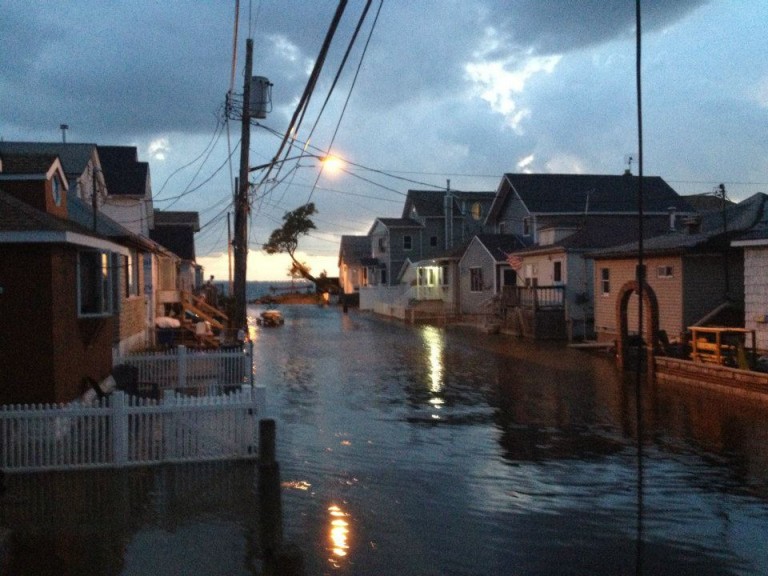The Federal Emergency Management Agency finally made public its flood insurance premium guidelines last week – and the numbers, Queens residents and coastal dwellers across the country said, are financially devastating.
FEMA released a report for homeowners in areas labeled as being at a high risk for flooding – which includes parts of Howard Beach, Broad Channel and the Rockaways, in addition to neighborhoods in Staten Island and Brooklyn – just weeks before increased flood insurance rates are expected to go into effect in October because of the 2012 Biggert-Waters Act. Approved by Congress in 2012, Biggert-Waters phases out some subsidized insurance rates and allows for rate increases of about 20 to 25 percent each year until properties reach actuarial status.

Queens residents said FEMA’s new details on flood insurance plans released last week would be disastrous for many homeowners. File Photo
According to the new numbers released by FEMA, individuals in homes four feet below the agency’s base-flood elevation, premiums would be what many say is an unsustainable $9,500 annually, and for those with homes at FEMA’s base-elevation levels, the rates would be about $1,410 each year. Residents in houses three feet above base-flood elevation would need to fork over $427 a year.
“If left unchecked, people are going to lose their houses and property values and local economies will tank,” West 12th Road Block Association President Peter Mahon wrote following a conference call with the Coalition for Sustainable Flood Insurance last Friday. “Real estate appraisers stated that the problem is ‘astronomical’ to the point that they don’t even want to think about it.”
While supporters of the Biggert-Waters Act have said that the bill was meant to make a debt-ridden National Flood Insurance Program more fiscally stable, as it has been hemorrhaging money, homeowners in Queens and coastal communities across the country have said the new rates will force many from their homes because they won’t be able to afford the increases.
Because of this, Queens residents, among others, are calling on Congress to amend the Biggert-Waters Act so that residents who have been living in houses that have been moved into high-risk areas would be grandfathered into the legislation and thus would not have to pay the flood insurance rates that many say will force them to move from their homes.
Some legislators, including Louisiana Sen. David Vitter, are urging President Obama to delay Biggert-Waters’ implementation until officials can study ways to make it more affordable. Numerous members of Congress – including U.S. Rep. Hakeem Jeffries (D-Queens, Brooklyn) have also asked FEMA administrator Craig Fugate to hold off on increasing residents’ bills.
Even U.S. Rep. Maxine Waters (D-Calif.), for whom the Biggert-Waters Act is in part named, has said the increases would be unsustainable.
“While actuarial rates are critical to the program’s success, we strongly believe that we should not burden homeowners with punitive or unaffordable rates that will slow our housing market recover and force families out of their homes,” Waters said in a prepared statement.
Queens residents will address the flood rate increases at a rally on Saturday, Sept. 28 at noon at the American Legion Hall on Cross Bay Boulevard in Broad Channel.
Mahon urged all those impacted – and those who are not but do not want to see residents potentially forced from their homes and businesses drained – to attend the event.
“There is strength in numbers, and a big turnout for this event would certainly bolster the gravitas of our representatives when dealing with FEMA to address this issue,” Mahon wrote. “This affects all of us.”
By Anna Gustafson

